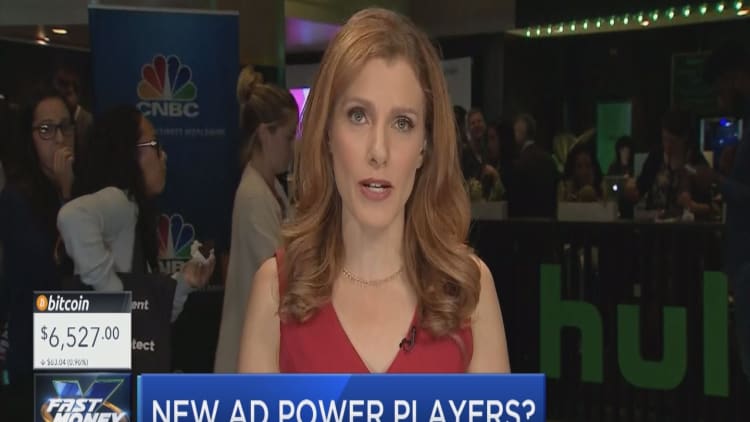Amazon's latest experiment to promote its own products — such as toilet paper, electric toothbrushes and probiotics — is taking place inside the listings of competitive brands.
When searching for various products in beauty, health and household and baby items, some shoppers have seen the link "Similar item from Our Brands" show up at the bottom of the listing. Clicking on the link, which is not an advertisement, takes you to the product page for Amazon's own private-label offering.
For example, the link under the product listing for Huggies diapers takes you to a page for Mama Bear, an Amazon-owned diaper brand. The link below a Dove body wash listing directs you to a product page for P.O.V., a personal care brand owned by Amazon.

Amazon never made a formal announcement about the feature, and it's not clear when it launched or if it's still being tested. Multiple sellers told CNBC that links started showing up about a month ago across a wide range of categories.
Amazon declined to comment on this story.
The new feature illustrates the growing tension between Amazon and the many big and small brands that have become reliant on the site because of its dominance in e-commerce. Amazon is becoming a direct competitor for more sellers, raising questions around how the company's use of its marketplace sales data could potentially give it an unfair advantage over other brands and merchants.
"If you've got Amazon brands competing against you, it's just become that much more difficult to be competitive in the marketplace," said Jeff Cohen, the marketing chief of Seller Labs, a company that helps sellers advertise on Amazon.
"Highly under-appreciated trends"
Merchants have expressed their frustration in Amazon's seller forum. One seller said it's "not very nice of Amazon," while another wrote that Amazon is now the "biggest competitor for most of us who sell here."
Amazon has significantly increased the number of private-label brands in recent years, and currently has over 120 of them, according to a new report published by TJI Research last week. That's more than a nine-fold increase since early 2016, SunTrust Robinson Humphrey wrote in a note in June. The firm expects Amazon's private-label business to generate $7.5 billion in sales in 2018 and $25 billion by 2022.
"Private label is one of the highly under-appreciated trends within Amazon, in our view, which over time should give the company a strong 'unfair' competitive advantage," the note said.
Clothing has been a big area of growth for Amazon, and the company now has its own mattress, according to reports this week.
European regulators are closely watching how Amazon uses its own sales data to potentially gain an unfair advantage over marketplace sellers. Margrethe Vestager, the EU commissioner for competition, recently said that, while there are no accusations against Amazon at this point, her department has started a "preliminary investigation" into how the company may be copying best-selling products by competitors.
Brian Sheehan, who teaches advertising at Syracuse University, said Amazon's tactics are "fair game," at least until the U.S. regulators determine otherwise. While it's common for big-box retailers to launch private-label brands based on what sells best in their stores, Amazon could be viewed differently because of its size and level of influence, he said.
"As long as Amazon can get away with it, it's a very smart business move on their part," Sheehan said.



